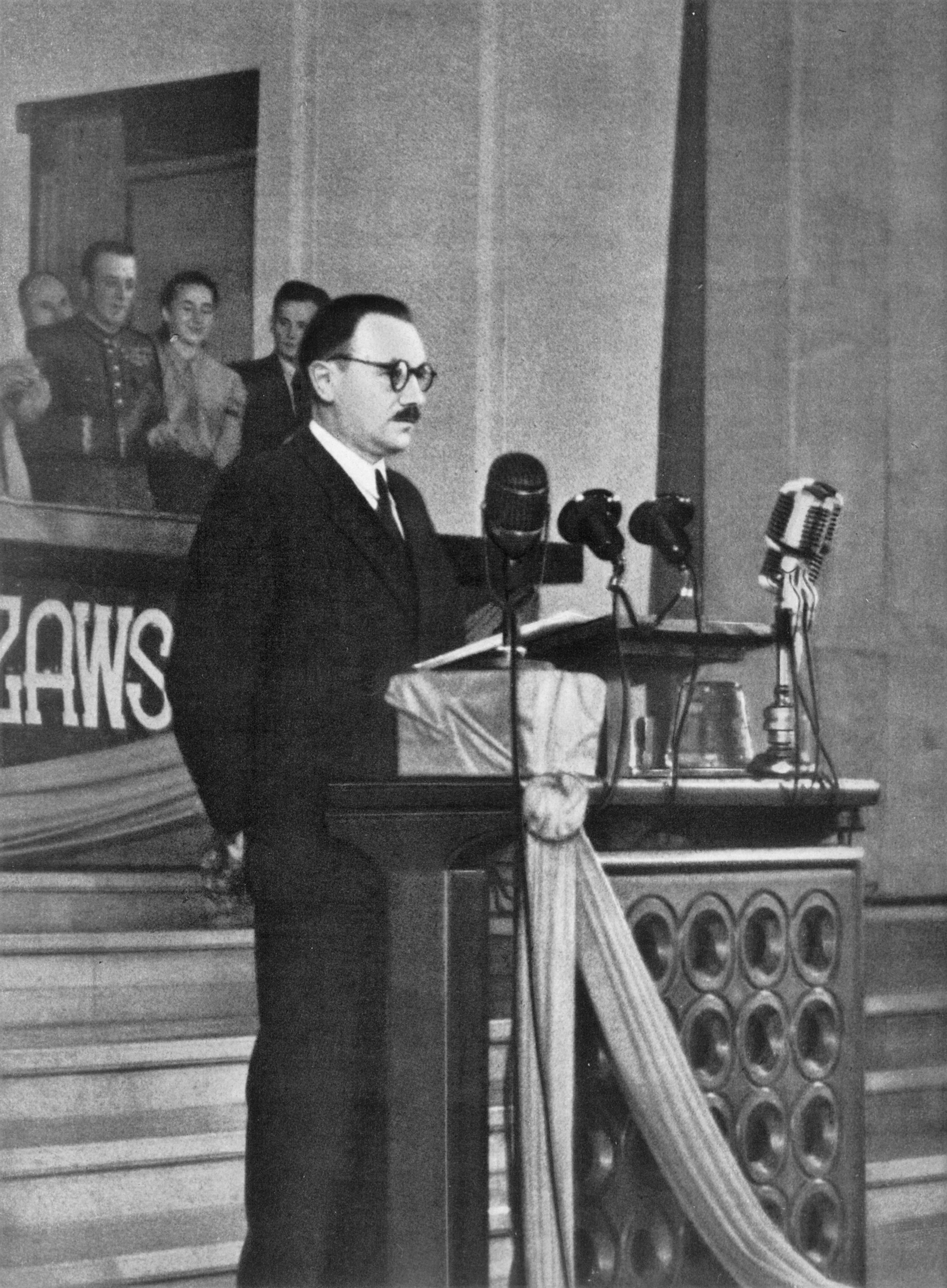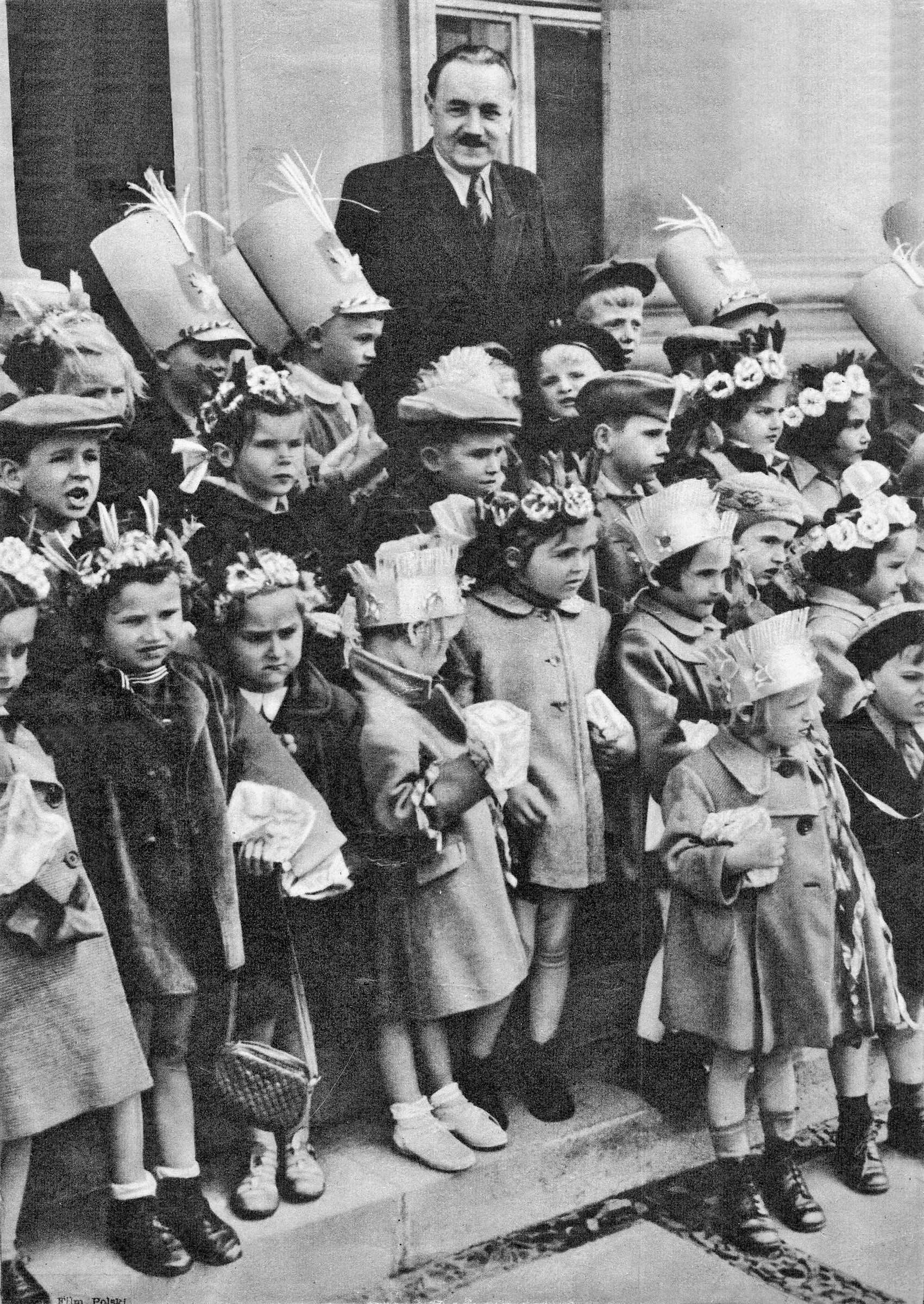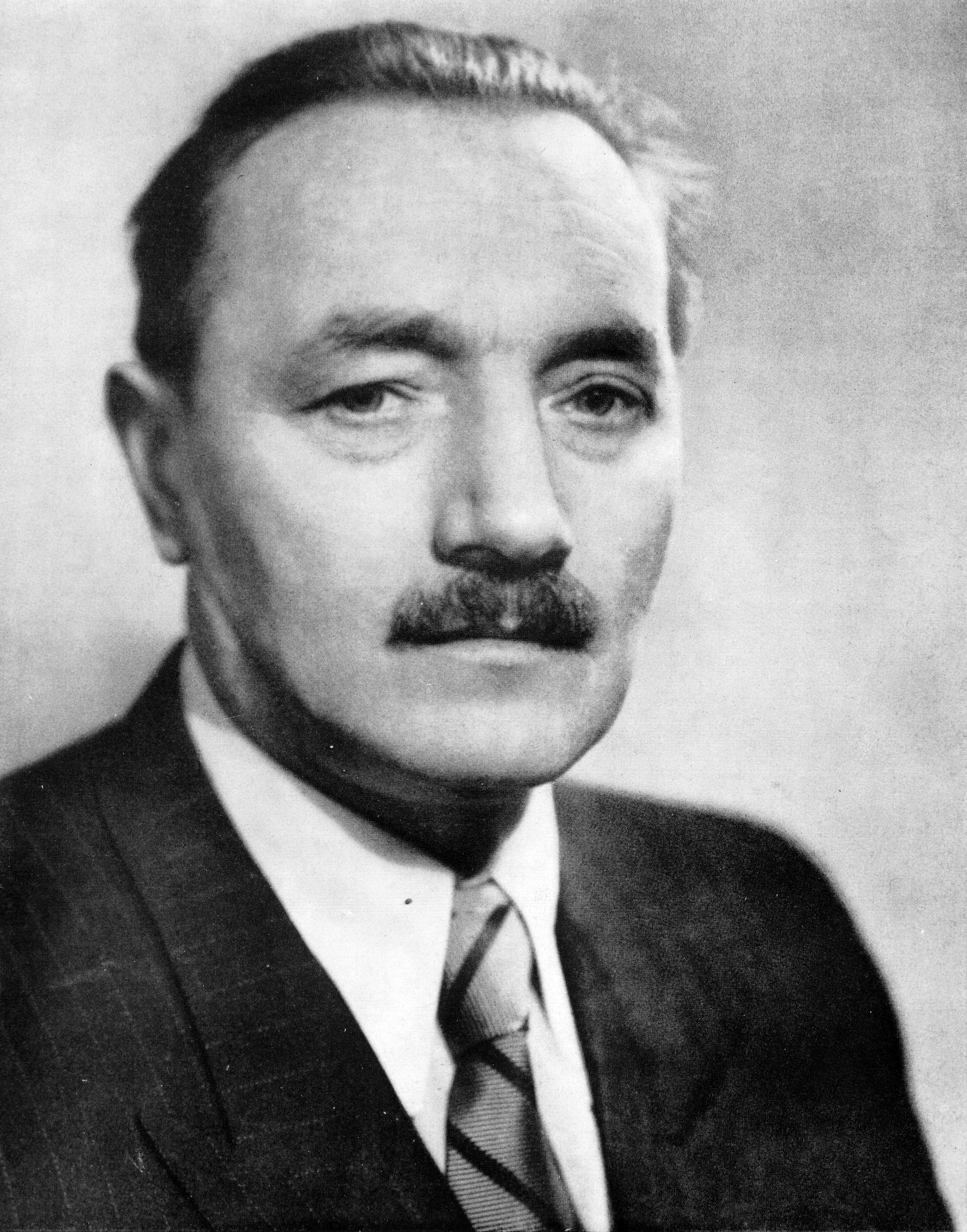Bierut, Bolesław, 1892-1956
Enlarge text Shrink text- Łukasiewicz, S. Byłem sekretarzem Bieruta, 1987:p. 22 etc. (Bolesław Bierut)
- Encykl. Pow. PWN,v. 1 (Bierut, Bolesław; b. 1892, d. 1956)
- The Author's אחדות סוציאליסטית בדימוקראטיה העממית הפולנית, [1949].
- Record enhanced with data from Bibliography of the Hebrew Book database
- בולסלאב בְּיֶירוּט (בפולנית: Bolesław Bierut (מידע • עזרה); 18 באפריל 1892, לובלין - 12 במרץ 1956, מוסקבה) היה פוליטיקאי ומנהיג קומוניסטי פולני, סוכן נ.ק.ו.ד., המזכיר הכללי של מפלגת הפועלים המאוחדת הפולנית ומנהיגה של פולין בין השנים 1948-1956. ( (ויקיפדיה, נצפה 21 ביוני 2023) )
Bolesław Bierut ([bɔˈlɛswaf ˈbʲɛrut] ; 18 April 1892 – 12 March 1956) was a Polish communist activist and politician, leader of communist-ruled Poland from 1947 until 1956. He was President of the State National Council from 1944 to 1947, President of Poland from 1947 to 1952, General Secretary of the Central Committee of the Polish United Workers' Party from 1948 to 1956, and Prime Minister of Poland from 1952 to 1954. Bierut is believed to have worked as an NKVD informant or agent prior to 1945, although his relationship with the Soviet agency has been a subject of debate among historians. As communist leader, he implemented aspects of the Stalinist system in Poland. Together with Władysław Gomułka, his main rival, Bierut is chiefly responsible for the historic changes that Poland underwent in the aftermath of World War II. Unlike any of his communist successors, Bierut led Poland until his death. Born in Congress Poland on the outskirts of Lublin, Bierut joined the Polish Socialist Party in 1912. Later he became a member of the Communist Party of Poland and spent some years in the Soviet Union. He was sentenced to a prison term in 1935 for conducting illegal labor activity in Poland by the anti-communist Sanation government and was later released in 1938. During World War II, Bierut was an activist of the newly founded Polish Workers' Party (PPR) and subsequently the chairman of the State National Council (KRN), established by the PPR. Trusted by Joseph Stalin, Bierut participated in the Potsdam Conference, where he successfully lobbied for the establishment of Poland's western border at the Oder–Neisse line. After the 1947 Polish legislative election, marked by electoral fraud, Bierut was made the first post-war President of Poland. In 1952, the new Constitution of the Polish People's Republic (until then known as the Republic of Poland) abolished the position of president and a Marxist–Leninist government was officially imposed. Bierut supported the radical Stalinist policies as well as the systematic introduction of socialist realism in Poland. His regime was marked by a silent terror – he presided over the hunting down of armed opposition members and their eventual murder at the hands of the Ministry of Public Security (UB), including some former members of the Home Army. Under Bierut's supervision, the UB evolved into a notorious secret police, which was responsible for the execution of six thousand people between 1944 and 1956, according to the Hoover Institution. As Poland's de facto leader, he resided in the Belweder Palace and headed the Polish United Workers' Party from the party headquarters at New World Street in central Warsaw, known as Dom Partii. He was also the chief proponent for the reconstruction of Warsaw (rebuilding of the historic district) and the erection of the Palace of Culture and Science. Bierut died of a heart attack on 12 March 1956 in Moscow, after attending the 20th Congress of the Communist Party of the Soviet Union. His death was sudden, and many theories arose questioning the circumstances in which he died. His body was brought back to Poland and buried with honours in a monumental tomb at the Powązki Military Cemetery.
Read more on Wikipedia >
 Personality
Personality


.jpg)











